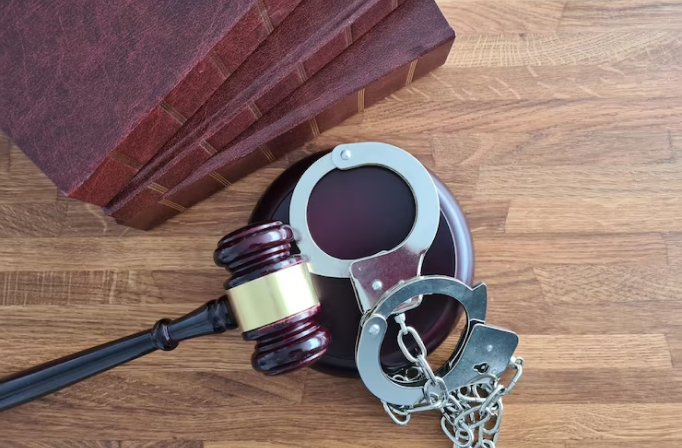Have you wondered what pretrial diversions mean within the criminal justice system in the US? If not, you have come to the right place. Pretrial diversions are generally known to halt the traditional criminal justice procedure. Moreover, the main aim of pretrial diversion is a way for certain defendants to avoid jail sentencing through various conditions. Stay tuned for more information regarding pretrial diversion.
What Is Pretrial Diversion?

Pretrial diversion (PTD) is defined as an alternate resolution that is provided mainly to criminal cases. Similarly, PTD diverts the traditional criminal justice process to a form of administered offender release through the state and its Department of Correction.
Moreover, defendants who are known to pass the pretrial diversion successfully have a higher probability of their case being dismissed. Similarly, if the defendant has failed to pass the PTD program, they tend to face the prosecution of their original offense.
Purpose of Pretrial Diversions

Every state in the US has a notion that not every person who has been charged with an offense is a bad person. Moreover, there is also a stigma that having a criminal conviction on a person’s personal record can negatively affect their professional and personal lives.
Due to this, pretrial diversion is a way for certain defendants to avoid the process of prosecution. Moreover, this is only when they have passed certain criteria that the judge or court has set.
In a traditional criminal justice system, an offender gets arrested, gets charged for their offense, and pleads guilty. Moreover, according to this, they receive a sentence or plead innocent, and then the case goes through trial.
The process of pretrial diversion stops the usual criminal justice steps that allow the offender to prevent jail time and penalties by meeting conditions set by the court. This can include community service, probation, counseling, and education.
The main purpose of pretrial diversion is to provide non-hostile offenders with an opportunity to rehabilitate. Similarly, moving on with their lives with any criminal records or arrest records that might harm their reputation in many spheres. Moreover, pretrial diversions also free the local courts to allow them to focus on serious crimes rather than non-serious offenses.
Who Is Eligible for Pretrial Diversion?

You might be wondering why certain offenders the opportunity has to go through a pretrial diversion and others don’t. Here comes the twist. Courts generally provide pretrial diversion to offenders who are not a threat to public safety.
Moreover, this means offenders who have been convicted for the first time or have been charged with a non-violent misdemeanor or third-degree felony are considered to be a part of pretrial diversion.
Similarly, eligibility for a pretrial diversion is mentioned within the criteria stated in JM 9-22.100. Some of the criteria for having eligibility for pretrial diversion are as follows:
- The defendant is a first-time offender. Or has not been convicted of more than one non-violent misdemeanor.
- The offender has been charged with a third-degree felony or misdemeanor.
- The defender has been approved for a pretrial diversion program through the program administrator. Moreover, they have also been noted to have acquired consent from the victim, state attorney, and the judge who resided in the initial hearing.
Furthermore, there’s an exception to the same. If an individual has been charged with a crime of drug possession, then there will be no victim. Moreover, they will still be eligible for a pretrial diversion program. Similarly, it will be only applicable when such an offender has no past records of committing a violent crime.
How Long Does Pretrial Diversion Last?

Now, you might be wondering about the timeframe of a pretrial diversion. Generally, a pretrial diversion program lasts between the period of six months to two years. The length of a PTD program depends upon the crime and ways the offender can do to avoid prosecution.
For instance, if the offender has been charged with a misdemeanor, then the PTD will last between six months and one year. Moreover, if charged with a felony, then the pretrial diversion shall last twice as long as before.
The length of a pretrial diversion tends to vary from state to state. For instance, Kentucky requires all pretrial diversions to last a maximum of five years by law. But judges in other states might opt for a shorter tenure of pretrial diversion period.
What Happens If You Violate Pretrial Diversion?

If it is proved that you have violated the terms of the pretrial diversion program, then you are in muddy waters. In simple words, if you violate pretrial diversion, the prosecutor will resume the case against you in court.
Moreover, a violation of pretrial diversion will also lead the district attorney to reopen the case against you. Similarly, law enforcement will resume the whole prosecution process. Along with this, you will be charged with an additional offense of violating the terms of pretrial diversion. So, it can be said that violation of a PTD will result in the case going to trial, which is the standard criminal trial process.
How Does a Pretrial Diversion Program Work?

The pretrial diversion program is generally known to be tailored in accordance with the specific requirements of the defendant. Moreover, it is also tailored as per the offense that has been charged against them.
For instance, if a person has been charged with drug possession, then they have to undertake random drug tests throughout the PTD. Similarly, such an offender’s PTD might also include a substance abuse program.
On the other hand, if the defendant has been arrested for a domestic violence charge, then they will have to take anger management sessions as part of their pretrial diversion program.
However, there are certain elements that are common in all pretrial diversion programs, irrespective of the charge faced. These are as follows:
- Length of administration and monthly reporting.
- Completion of certain hours of community service.
- Avoidance of being arrested for another offense during a specified time frame.
- Program fees and/or restitution.
- Counseling sessions depending on the offense.
- Mandatory attendance in pre-decided educational programs.
What Happens After Completing a Pretrial Diversion Program?

The most common question that defendants assigned to a pretrial diversion program ask is, what will happen after completing the PTD? But before that, to complete a PTD program successfully, it is necessary that you successfully meet all the criteria that are included within your pretrial diversion program.
After you have successfully completed your criteria and it needs to be assigned to you in your pretrial diversion, the misdemeanor or third-degree felony will be dismissed against your name. After this, you can easily state in your employment application and other areas that you were never convicted of any offense.
However, you have to note that the arrest record will remain within your personal records. For instance, if you have been charged with a DUI and have successfully completed your pretrial diversion, you will still see that you’ve been arrested despite no charges. Moreover, this can affect your opportunities while searching for a job or while you apply for a loan or mortgage.
However, you do have the option of getting your records of arrest sealed or expunged if it doesn’t lead to trials or convictions. Similarly, some government institutions will have access to your arrest records despite them being expunged or sealed.
Expunging your arrest records will result in a court order that will direct all government institutions that have your record to effectively destroy the physical record of your arrest. These agencies include the State Attorney, the state’s law enforcement, the clerk of court, and the police department.
Advantages and Disadvantages of Pretrial Diversions

Pretrial diversion applications are created for the providence of a second chance to a person who has never been convicted of an offense earlier than. Similarly, this is mostly because the United States criminal justice system believes that no man or woman is a bad individual. Moreover, a person who has committed a misdemeanor or a third-degree felony does not deserve to undergo harsh penalties. Moreover, the presence of a pretrial diversion also lets the defendant dispose of conviction/criminal statistics, that is wonderful for both private and professional lives.
Advantages of Pretrial Diversion

However, there are both benefits and downsides associated with pretrial diversion in the criminal justice system. The fundamental advantage of a pretrial diversion is that it lets people keep away from jail time by means of standards set by the trial court.
Additionally, other advantages of pretrial diversion are that it relieves the defendant from the time, cost, and stress of going through a criminal trial. Another advantage of a pretrial diversion is that it allows certain individuals to acquire counseling or remedy for their underlying mental problems.
Similarly, these mental troubles are the primary reason why positive people tend to have criminal behaviors. For example, an individual having troubles with alcohol would possibly get involved in crimes associated with the ownership of drugs. Moreover, providing pretrial diversion to such offenders would possibly allow them to efficiently address their underlying mental troubles to keep away from criminal behavior in the future
Disadvantages of pretrial diversion

On the other hand, the inclusion of pretrial diversion can also be a disadvantage for many. Especially for offenders who do not have access to the program. So, it can be said that the occurrence of pretrial diversion seems to be unfair to many.
Moreover, another reason why pretrial diversion seems like a disadvantage is for the special criteria that allow few defenders to have access to it. For instance, a first-time defender who has committed a misdemeanor. Or a third-degree felony is included within a pretrial diversion program.
Similarly, pretrial diversion additionally allows the offender to go through counseling and personalized remedy for his or her underlying mental troubles that caused the criminal activity. In such cases, it’s been argued that there are many repetitive offenders with mental issues that permit under the law and face the conventional prosecution manner.
So, the benefit would possibly encompass that even serious offenders of crimes are eligible to obtain counselling to resolve their problems. Moreover, another disadvantage of pretrial diversion is that it permits many offenders to get away with their crime for the sake of committing it for the first time. Similarly, PTD doesn’t act like a robust deterrent for committing crimes in the future.
So, it is necessary that both advantages and disadvantages of pretrial diversion must be considered before assigning an offender to a pretrial diversion program.
What Kind of Lawyer Will Help Me in Getting a Pretrial Diversion?

You might be wondering now what form of lawyer will come to your rescue to offer you a pretrial diversion. Worry not, an experienced criminal defense lawyer is what you’ll need in such a scenario. It is necessary that you have a qualified protection lawyer who will correctly defend your case to acquire the right of gaining a pretrial diversion on your case. Moreover, your protection lawyer will also be powerful in convincing the prosecution concerning your eligibility to be part of a pretrial diversion program.
Final Words
Now you have got a detailed concept regarding the concept of pretrial diversion inside the criminal justice device in the United States. Moreover, it’s cautioned that when you are convicted against the law, you need to employ a criminal defense attorney for a higher expertise of the approaches you can use to defend your case.
Similarly, from this article you’ve additionally found out that there are both benefits and disadvantages associated with the concept of PTD programs. So, it could be stated that the idea of pretrial diversion isn’t always supported by everyone. This is because it makes the system unfair. On the other hand, it may additionally improve many who’ve been convicted for the first time and show the potential to improve their underlying troubles to resist criminal activities.
Read Also:






